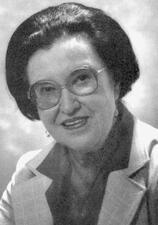Science: Medicine
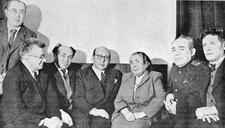
Lina Solomonovna Stern (Shtern)
Lina Shtern, biochemist and physician, was the first woman professor at the University of Geneva and the first woman named to the Soviet Academy of Sciences. Born in Latvia, then part of the Russian Empire, she returned to the Soviet Union out of political idealism. A member of the Jewish Anti-Fascist Committee during World War II, she was a victim of postwar repressions that targeted both scientists and Jews.
Hannah Mayer Stone
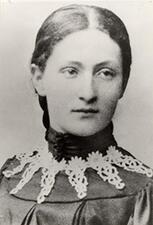
Rahel Straus
Rahel Goitein Straus, a pioneering woman medical doctor trained in Germany, was a model “New Jewish Woman” of the early-20th century. Successfully combining a career as a physician with marriage and motherhood, she committed herself to Jewish and feminist causes and organizations throughout her life, while also embracing Zionist ideals.
Lillian Laser Strauss
Lillian Laser Strauss performed pioneering work in public health and child welfare in Pennsylvania, became a lawyer at age fifty, and, in the midst of active legal advocacy for public health, died suddenly of a heart attack at age fifty-six.
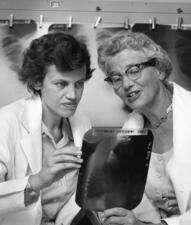
Helen Brooke Taussig
Helen Brooke Taussig was one of the most celebrated physicians of the twentieth century. Through her research and teaching. she was a leader in the development of the medical specialty of pediatric cardiology, pioneering treatment for infants with congenital cardiac defects.
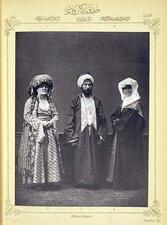
Turkey: Ottoman and Post Ottoman
The Jewish population of Turkey navigated far-reaching changes in the political, social, and geopolitical spheres in the late nineteenth and the early twentieth centuries, as the Ottoman Empire pursued reform and collapsed and the Turkish Republic that took its place imposed a process of “Turkification” on its residents. During this period, Jewish women partook in traditional customs relating to religion, family, and the home, while also accessing new opportunities in the public sphere through education and political engagement.
Rosa Zimmern Van Vort
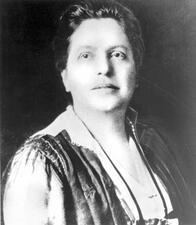
Lillian D. Wald
Guided by her vision of a unified humanity, Lillian D. Wald passionately dedicated herself to bettering the lives and working conditions of immigrants, women, and children. She founded the Henry Street Settlement in New York City and initiated America’s first public-school nursing program. A talented activist and administrator, Wald’s pathbreaking work continues to be memorialized.
Marie Pichel Levinson Warner
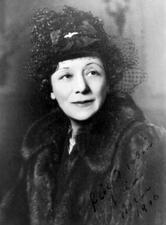
Vera Weizmann
A Zionist and a physician, Vera Weizmann was a founding member of the WIZO. She accompanied and assisted her husband Chaim, the president of the Zionist Federation of Britain and first president of Israel, as he negotiated the founding of a Jewish state.
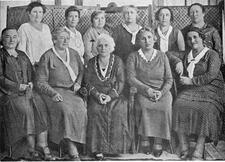
Rosa Welt-Straus
Charlotte Wolff
A pioneering German-Jewish lesbian and feminist physician, Charlotte Wolff became interested in sexology, psychotherapy, and chirology while working as a physician in Berlin’s working-class neighborhoods. Soon after the Nazis came to power she fled to France and then to England, where she began researching and writing books on chirology. In the 1960s she turned her research to homosexuality and published a landmark study on lesbianism.
Martha Wollstein
Responding to the public health crisis of the early twentieth century with a declaration that the current generation of women physicians had “entered societies and laboratories for the benefit of all,” Martha Wollstein had an exemplary career in pathology and the experimental study of childhood diseases.
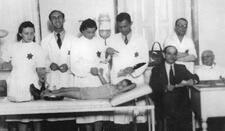
Women's Health in the Ghettos of Eastern Europe
Women in the ghettos of Eastern Europe often outnumbered men, but within ghetto populations, women generally had lower mortality rates than men, perhaps due to their ability to adapt to their surroundings and use of public health services. However, women suffered uniquely; many women did not menstruate, suffered from symptoms caused by hormone imbalances, and endured prohibitions against childbirth.
